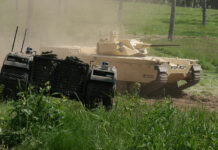The upper chamber of the Russian parliament has unanimously given a formal consent to President Putin to use the nation’s military in Syria to fight terrorism at a request from the Syrian President Bashar Assad. Consent was necessary for deployment of troops for foreign combat missions under the Russian constitution.
Head of the presidential administration Sergey Ivanov stressed that no ground operations are planned in Syria. Russia would use its warplanes to hit terrorist targets when requested by the Syrian government. He stressed that unlike the US-led coalition of countries that bombs militant troops in Syria, Russia was invited to do so by the legal authorities of Syria and thus follows international law.
The development comes after Moscow has intensified involvement in Syria, establishing an Iraqi-based military communications center with Damascus, Baghdad and Tehran. It also happened just days after President Putin called for an international anti-terrorist effort in Syria that would include the government of President Assad at the UN General Assembly.
[ismember]Source: RT[/ismember]
At the same time, the US may be scaling back its support to moderate rebel forces. The Pentagon said Tuesday that its program to train and equip moderate Syrian rebels to fight the Islamic State in Iraq and Syria has temporarily stopped receiving new recruits at its training sites.
“We continue to recruit and vet potential participants for the [train and equip] program. As we review the program, we have paused the actual movement of new recruits from Syria,” Pentagon press secretary Peter Cook said. That first class of 54 rebels disintegrated after deploying back into Syria, after being attacked by Al Nusra Front. 70 more had deployed back into Syria, but some have also turned over their equipment to Al Qaeda affiliated Al Nusra Front.
The administration announced the creation of the program last year, which aimed to build a ground force to take on ISIS and supersede the need to send in U.S. forces. Congress authorized the program in September and provided $500 million for the program in December.
[ismember]Source: The Hill[/ismember]
















